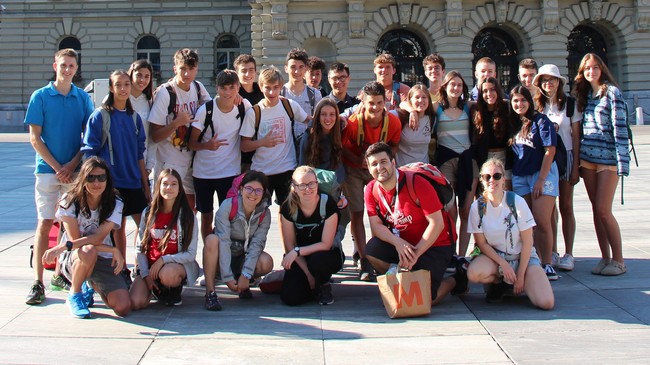
UK interest in luxury timepieces is growing

The British are not known for spending large sums of money on luxury wristwatches. The "man in the street" appears content to wear a timepiece costing tens of pounds rather than thousands, as long as it does the job. Those who are more extravagant have usually seen an expensive watch as a one-off buy to last a lifetime.
Yet the most recent statistics published by the Federation of the Swiss Watch Industry tell a different story. Released in late December, the November numbers show that the UK soared to fourth spot in terms of the month’s world distribution of Swiss watch exports – from eighth in October – behind Italy in third place, the US in second and Hong Kong in first.
The figures for the first 11 months of 2015 further show the UK to have become the eighth-largest market worldwide, after an increase of more than 18 per cent over the previous year. Since 2010, the value of Swiss watch exports sent to the UK has almost doubled, from CHF596 million to CHF1.06 billion ($1.06 billion), sending the country ahead of previously stronger regions such as Singapore, Russia and the Middle East.

More
Financial Times
External linkThe growth in UK watch sales seems all the more impressive when compared with the dramatic downturn that has taken place in some of the world’s leading markets. Exports to Hong Kong dropped almost 28 per cent in November compared with November 2014, although it still took in watches worth a total of CHF248.8 million, twice the value of those sent to Britain.
While foreign visitors still account for a large proportion of luxury watch sales made in London, in cities such as Birmingham and Manchester and at airports, Brian Duffy, chief executive of Aurum Holdings, which owns the UK-based retailers Watches of Switzerland, Mappin & Webb and Goldsmiths, says the relatively sudden increase in the standing of the UK in the global watch market can be attributed to a range of factors.
“During the past year alone, there has been a great deal of very specific activity in the UK that has led to an increase in both awareness and sales,” says Mr Duffy, whose 150 stores offer watches ranging in price from £100 to £1 million.
“From Aurum’s point of view, our flagship Watches of Switzerland store on London’s Regent Street has now been open for a full year and is proving extremely successful, and we’ve opened another huge store on Oxford Street. There have also been a number of significant mono-brand store openings by makers such as Patek Philippe, Jaeger-LeCoultre and IWC – and the Patek Philippe exhibition held at the Saatchi Gallery during the summer brought in a great deal of business, thanks to the large number of visitors coming from both this country and abroad.”
The major watch brands have been investing heavily in marketing, he adds. “There have been events such as the release of the latest James Bond movie, Spectre. Omega is the official supplier of Bond watches and buyers in the UK respond especially well to that association.”
In the year to April 2015, Aurum Group turned over £410 million; according to market researcher GfK, that gives it a 31.2 per cent share of the market. The average price of men’s watches sold by the group has remained flat at £4,750, but the average expenditure on women’s pieces – £3,836 – represents an 8 per cent increase over the past year, attributed to a rise in demand for more expensive mechanical models.
Mr Duffy believes UK residents are becoming increasingly comfortable with the idea of investing in luxury watches in an act of what he terms “rational indulgence”.
“British people realise that they don’t need an expensive watch to be able to tell the time,” notes Mr Duffy. “But they are becoming more and more appreciative of the fact that a watch can be a very resilient investment and a family heirloom.”
It is a sentiment with which Mark Hearn, managing director of Patek Philippe in the UK, agrees. “UK residents are more knowledgeable about quality watches and therefore are prepared to spend money to acquire them,” he says.
Patek Philippe has seen very strong, double-digit growth in the UK and increased demand throughout the range, from entry level to the high-value, grand complication models that have been steadily attracting more UK buyers over the past four years.
Copyright The Financial Times Ltd. 2016. All rights reserved.

In compliance with the JTI standards
More: SWI swissinfo.ch certified by the Journalism Trust Initiative
















![The four-metre-long painting "Sonntag der Bergbauern" [Sunday of the Mountain Farmers, 1923-24/26] had to be removed by a crane from the German Chancellery in Berlin for the exhibition in Bern.](https://www.swissinfo.ch/content/wp-content/uploads/sites/13/2025/12/01_Pressebild_KirchnerxKirchner.jpg?ver=cb688ed5)














You can find an overview of ongoing debates with our journalists here . Please join us!
If you want to start a conversation about a topic raised in this article or want to report factual errors, email us at english@swissinfo.ch.